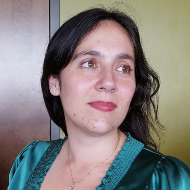It's not a huge surprise to anyone who knows me that I spend way too much time on Facebook. And so, of course, I’m familiar with the page “I F*cking Love Science”. For those who don’t know, this popular page, followed by over twenty million people, posts science related photographs and interesting facts. In the last couple of weeks I’ve seen a lot of criticism of this page amongst my friends on my feed. Some people think it’s too shallow, or that it doesn’t have much to do with “actual science”. This sentiment isn't exactly new. Pushback against the page really began around 2013. Since then bloggers on several prominent sites, like mashable and deathandtaxes, have written about why they hate the page and what they think it takes to love science. Expressing a similar sentiment, this comic from Cyanide & Happiness has been making the rounds again lately.
Last week a number of my associates engaged in some kind of a weird ideological purity session after reading the comic, arguing about who *really* loved science. As the resident science-person in my immediate social circle, I was pulled into the discussion. I encouraged people to calm down. We can all love science! There’s enough science to go around for everybody! My peacemaking attempt did not work. I was almost immediately accused of being a science non-lover myself. Cited as evidence: I once described a research project I worked on as incredibly boring. Sensing French Revolution-like levels of danger, I did what any sensible intellectual would do and hastily decamped, so as to consider my position further from safe ground.
What's it mean to love science? I’ll admit, I don’t have a ton of enthusiasm for “I F*cking Love Science”. Like many of the page's critics, I find the content a little repetitive and a bit shallow. But at the same time, I do get a lot of enjoyment out of learning new “science facts”; i.e., I am definitely guilty of looking at science’s butt as it walks by. And I am totally unashamed about how much I like looking at cool pictures.

Wikimedia Commons
Here’s my argument. An appreciation of these surface level features of science- the beautiful micrographs and the vast images from space, the strange factoids, the fun trivia—is not a bad thing. When we love something, we often enjoy the surface. But there is a difference between loving something and enjoying the surface, and that difference in good part involves an appreciation and understanding of what lies below that surface. Some other bloggers have made reasonable arguments that it’s important to care about scientists.They say that if you really love science you’ll vote and work to increase research budgets, and those are definitely important things to do! In 2016 we’re looking at some solid research funding increases, which is great news. Advocating for science is important, but an appreciation for what goes into producing those striking images and cool results goes beyond the money. The real thing to love is the method.
Understanding the scientific process, and choosing to engage in the scientific process, is what I associate with loving science. Science is not an abstract thing or a distant source of facts. Science is not so much a noun as it is a verb. And loving science is doing science. You might think that sounds goofy or exclusionary. I mean, not everybody can be a research scientist. However, the notion that science is only done by professionals is a damaging idea. Engagement with the scientific method is a great life strategy for everyday problem solving. When I was in college and my beater car started leaking weird fluids, how did I solve the problem? Hypothesis testing, recording data, and a willingness to use basic safety precautions. Science! When I was alone in my house and I heard weird noises, did I assume it was ghosts and leave out a placatory dish of milk? No! I investigated the problem and found a bunch of pissed-off bats. Science!
The next time you get in a science fight, or you’re trying to figure out what it is to love science or care about science, consider something that goes beneath pretty pictures, awesome facts, or even research budgets. How engaged are you with science? Is the scientific method something that you think of as a tool in your life? Do you use it to help you solve problems? This kind of meaningful engagement with science is what kids should be developing when they go to science class. Students should be learning about science as an applicable, useful, meaningful method. But a lot of kids aren’t developing that appreciation, and a lot of adults never had the chance. This is a big part of why the outreach NCSE is doing through the Science Booster Club project could be so important. If we want to promote a love of science, it helps to give people a chance to do it.

